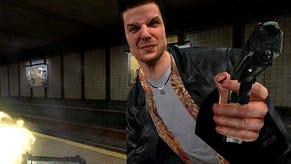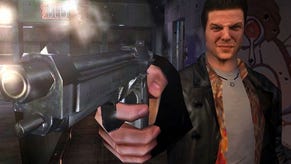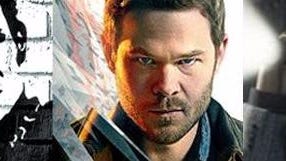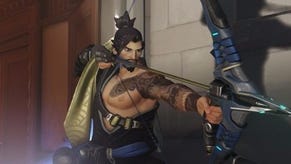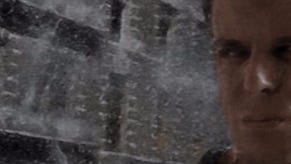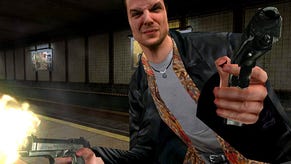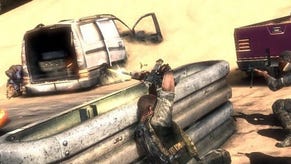Retrospective: Max Payne
Soft boiled.
My memory likes to pretend Max Payne came before the first Matrix film, but it's quite significantly the other way around. The Matrix was 1999, Max Payne 2001. It seems remarkable that it was two years before a game effectively incorporated the effect the Wachowskis had made look so cool. But Max Payne is equally influenced by the films of John Woo, and any number of hard-boiled detective fictions. Jumping sideways with guns in both hands, in slow motion, it's a small wonder doves aren't flying everywhere. Before Max comments on how their wings somehow remind him of the death of his mother.
And let us not forget the dream sequences. Max's anger is fuelled by the deaths of his wife and baby a couple of years earlier. His dreams always take him back to that house, to that night.
Walking along peculiarly decorated corridors, the game dolly zooms to create a sickening sensation of distance, the screams of his wife and cries of his child floating in the air, moving around your surround sound speakers such that you can never catch up with them. It's enormously effective, somewhat bolstered by the game still looking really fantastic a decade on. The character models look daft, but the cities and buildings hold up magnificently.
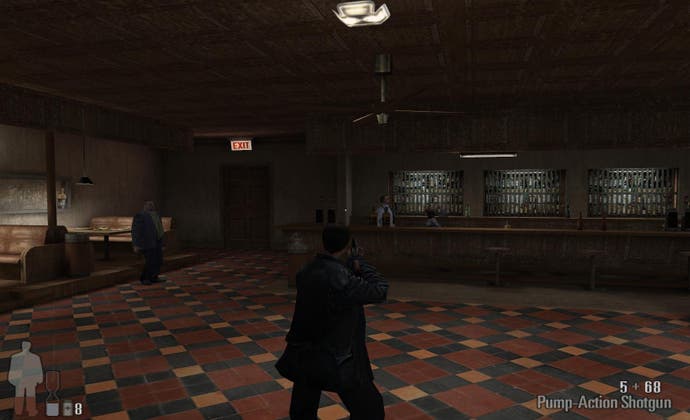
The second time Max dreams, this time in a drug-fuelled nightmare, things get really interesting. The first time you learned what the house looks like (although perhaps without quite such a long landing, and it's unlikely to have ended in a path of blood floating in space), especially the baby's nursery. This second time the nursery wallpaper has spread across the whole building, a building that now defies logic.
This climaxes in a looping moment where Max finds himself entering the same room repeatedly, a message on a desk and a ringing phone delivering him increasingly meta thoughts. "You are in a graphic novel," explains a letter written by his wife. Presented in the style of a graphic novel, it's hard to argue with the logic.
"All of my past was just fragmented still shots. Words hanging in the air like balloons."
Then it loops. You're back in the room, there's the letter, the phone's ringing.
"You are in a computer game, Max."
Again, tough to disagree. The middle image shows the weapon options above Max's in-game grimacing head.
"Weapon statistics hanging in the air, glimpsed out of the corner of my eye. Endless repetition of the act of shooting, time slowing down to show off my moves. The paranoid feel of someone controlling my every step. I was a computer game."
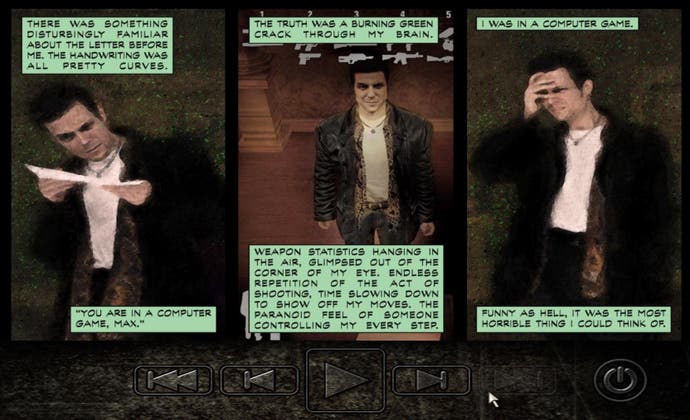
You then shoot another version of yourself. It's one of those sorts of moments.
There's something about that description. It's almost confessional. That's what Max Payne is - endless repetition of the act of shooting. Sometimes you slow down time. There's nothing more to it than that.
In fact, that shooting is remarkably primitive. There's no regioning of the enemy's bodies. A headshot counts for nothing. The targets are also very unevolved. They have no useful AI beyond their scripting, although this is often smartly done. Of course, reload and repeat and they'll walk right into any appropriate trap you might set up. (And the joy of playing the game now is that reloading is instantaneous.)
But there's so very much to love about Max Payne. How about that instead of med packs you have painkillers? They have the same gaming mechanical effect, but it's a statement. Max isn't the sort of guy who stops to put on a bandage. He just knocks back some opiates and gets on with things.
The work was done. I walked into Bramwell's office and dropped the files on his desk with the disinterest of a tree dropping its autumnal leaves. He looked up at me from his morning paper, cigar smoke blowing around his head like a silver curtain parting to begin the play.
"This it?"
I grunted yes. He took the file and flicked through, barely looking at the pages.
"You still here?" he asked, eyes pointed at his office door. I took the hint and turned to leave.
"Oh, Walker?" said the editor through ashen clouds. I raised an eyebrow. "You're in a videogame retrospective narrative device. Now get out."


